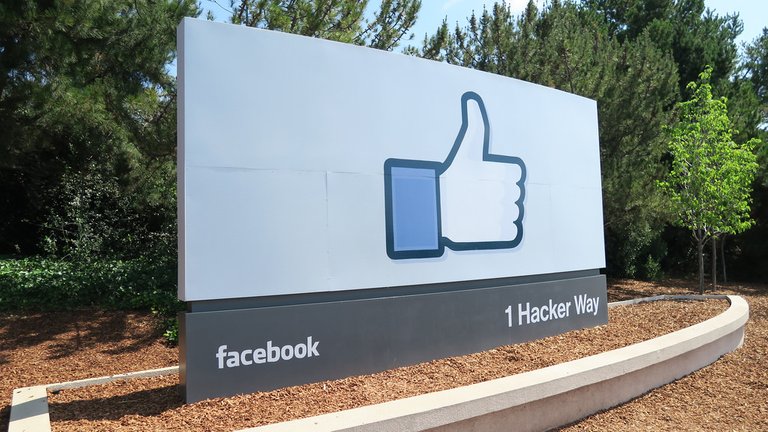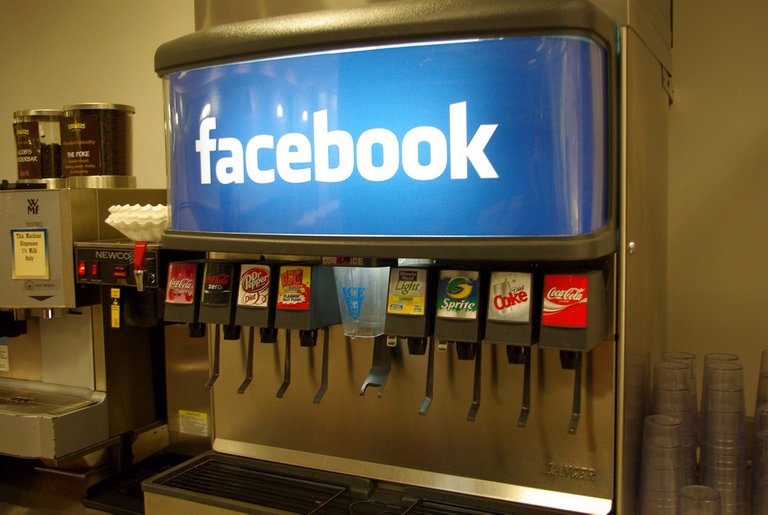
Facebook HQ by Isriya Paireepairit via Flickr CC
If you work in the field of digital marketing, then you’re aware of the major announcement from Facebook regarding its News Feed. The New York Times calls it the “most significant overhaul in years” and will even further hamstring the organic reach of brands. Side note: organic reach has been dying for a while now—read my first Steemit post for all the details. But I want to offer some quick opinions as to “why” this change has happened and “what” it means for brands.
Why the News Feed Change
While Silicon Valley had been the darling of the late aughts and early teens, there has been a sea change against it. In particular, folks have begun noticing how addictive the tech is and how it is damaging our real-world interactions. In fact, many of the folks who initially worked on the technologies are now backing away from them.
And driving addictive behavior is the name of the game. Similar to cigarettes, junk food and slot machines, when the product is habit-forming it becomes stickier—people have to come back again and again to get the next hit. Tech—in particular social networks—is just the next product in the long line of stoking addiction.

What's more addictive? Facebook or soda? Image by Jakob Steinschaden via Flickr CC
Facebook saw this sea change and I commend them for making a pivot. Rather than doubling down on the addictive nature of the tech that has been proven to make you sad, Facebook is at least trying to break that cycle by becoming more “meaningful.”
What they mean by “meaningful” is best summed up on their News Room Blog Post. This is worth a read, but to summarize it comes down to prioritizing “posts from friends and family over public content, consistent with our News Feed values.”
Reading between the lines, this means that all those organic posts from your brand (that most people don’t care about anyway) are going to be vaporized. Actually, you don’t have to even read between the lines. The post goes on to say, “Pages making posts that people generally don’t react to or comment on could see the biggest decreases in distribution.”
Overall, this should be a good change of pace for users, but brands, non-profits and organizations are going to be less than thrilled. So, if the organic avenue is dead, what does that mean for the paid?
Potential Effects on Paid Facebook Advertising
I’ve read from a lot of folks in industry (mainly in offline messages) that they don’t feel that this will impact paid social marketing on Facebook. I disagree. In fact, I predict that it will have two main impacts: (1) the cost to advertise will dramatically increase and (2) the quality of interaction will also increase (but not as much proportionately to the cost).
Why? It’s a simple supply-and-demand calculation.
In a video on the Facebook News Room article, Mark Hull, Director of Product Management at Facebook, said that, “We also expect overall time spent on Facebook to go down, but our goal is that the time people do spend on Facebook will be better.”
To me, this means that there won’t be as much “inventory” (read: eyeballs) available on the platform. That coupled with the overall digital marketing demand of sponsored posts (which I can only assume is growing by the day) will create a shortage, thus requiring brands to pay more to get their message out. This increase in cost will also result in a decrease in the times that a sponsored post will be shown, helping Facebook achieve the goal of what people see to be more “person-to-person.”
I would wager that the CPC metrics will increase anywhere from 30% to 80% over the next year, but could go as high as doubling. I think that this will price out more of the mom-and-pop businesses and small-time entrepreneurs. But the larger brands will pay it, because of my second prediction: the quality will be better.
If Facebook is able to pull off this pivot it would be monumental. I remember The Facebook from 2004/2005 when it was magical—it was a way to actually link up with old friends and new ones alike. For those who didn’t get to experience the platform then, it was kind of euphoric and we all actually felt connected.
Fast-forward to 2018, and I think few would use the word “euphoric” to describe social media. Meaningless, divisive, addictive, time-suck, those are the words used to describe the platforms. Consequently, many of the original users (including yours truly) have fled from using the platforms for personal reasons.
If this new News Feed algorithm can get a piece of that mojo back and people can feel connected once again, the overall quality of that platform will increase for marketers. That means you’ll actually be able to reach the right person and they’ll be in a good mood (as opposed to being depressed, envious, angry, etc.). I expect that some of the quality of the people being marketed to will increase, although it won’t be in proportion to the cost.
Looking Forward
These are just a couple of predictions and I’m curious to see how it plays out. I’d also be interested in seeing what the Steemit community thinks! Be sure to let me know your predictions in the comments!